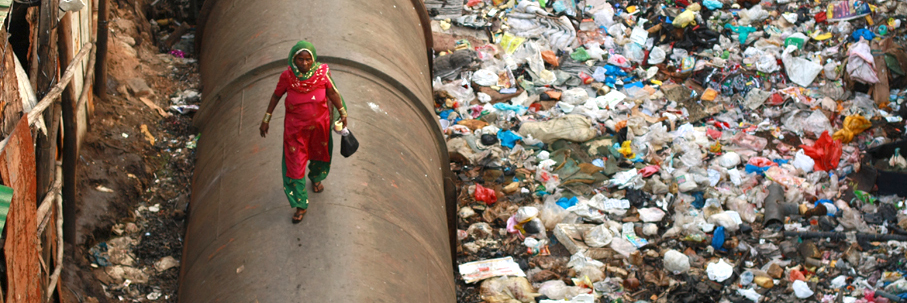
This week UN negotiators from myriad nations meet to begin building the first Global Plastics. Dr Noreen O’Meara takes a critical look at some of the key players and coalitions, where they differ, where they agree and what they bring to the table.
Leading up to the negotiations for a proposed UN Global Plastics Treaty by the International Negotiation Committee (INC), several coalitions are setting out their goals. As the coalitions continue to gain members, issue public statements and policy briefs, and debate aspects of the proposed instrument over the coming years, they are likely to be influential groups. This piece considers selected coalitions which will be engaged in the negotiations. It does so with the caveat that a credible INC process must involve scientific expertise at its heart, and accommodate the voices of the full range of stakeholders involved in and impacted by plastics production, consumption, trade and pollution.
The ‘High Ambition Coalition to End Plastic Pollution’ (HAC), led by Norway and Rwanda, was inspired by the adoption of UNEA resolution 5/14, and was launched this year with a core goal of eliminating plastics pollution by 2040. Its membership was given a boost days before the opening of negotiations when the EU joined the coalition. The UK is affiliated to the HAC, which now represents over a quarter of UN member countries.
In pursuit of the 2040 goal, the HAC aims for an agreement which:
- Curbs the consumption and production of plastic to ‘sustainable levels’;
- Facilitates a circular economy for plastics;
- Provides for better management and recycling of plastics waste.
To achieve these strategic goals, the HAC envisages command and control measures (e.g. bans and restrictions), global sustainability criteria, standards and targets for plastics, measures to render value chains more transparent, and an agreement which addresses the whole lifecycle of plastics. Overall, the HAC favours measures which aim for a global shift to a Circular Economy in plastics.

Meanwhile, WWF and the Ellen Macarthur Foundation (EMF) are jointly convening the Business Coalition for a Global Plastics Treaty – a group of over 80 businesses and financial institutions, supported by NGO partners, aiming to build momentum for an ambitious legally binding treaty. Central to the Business Coalition’s vision at the outset of the negotiations are the goals of:
- Reducing plastics production and use via a Circular Economy approach at scale;
- Increased circulation of necessary plastics;
- Preventing plastics from leaking into the environment.
The Business Coalition argues that achieving a shift to a Circular Economy approach at scale would reduce plastics pollution by 80% by 2040 and close to 100% by 2060. This could be facilitated by innovation in materials and product design, and interrogating the plastics value-chain to find ways to retain value and eliminate scope for waste.
Many of us in the academic and scientific community believe the treaty’s impact should be more far-reaching than this. While the coalitions’ proposed targets differ, both are motivated by the benefits of systemic change. Traditional command and control tools are anticipated – mirroring efforts increasingly used at national level – but replicating these at scale will not solve the problems of plastics waste. Creative solutions and an inclusive process are needed, together with rigorous legally binding provisions, to maximise implementation, compliance and support from the private sector and general public.

There will certainly be countries involved in the negotiations that may be less enthused by the kind of radical transformations which those committed to net-zero plastics waste will be arguing for. A credible global agreement needs all major players – and polluters – on board. Before the start of the negotiations, the USA was said to be reaching out to G7 countries to lead another coalition, with suggestions that it favours a looser agreement characterized by voluntary targets. The position taken by the USA may be influenced by its mid-term election results. However, the growth of state-level climate and plastics legislation in at least some states suggests there will be a vocal internal lobby pushing the USA to commit to optimising the treaty agenda, not diluting it. Exactly what approach the USA will choose to take should be revealed in the coming week.
The voices engaged in the INC process are crucial. It is vital for the integrity of the negotiations and resulting treaty that the process is informed by scientific expertise on the impacts of plastics in the environment. The negotiations must provide scope for full account to be taken of the lived experience of communities impacted by the consequences of plastics waste pollution, and who work in the plastics value chain. The plastics waste crisis is a global problem, one which is experienced in radically different ways around the world. It is hoped that the INC process will be able to reflect this.
Dr Noreen O’Meara, Associate Professor of Human Rights, European and Environmental Law. School of Law, University of Surrey, UK.

The issues of environmental justice in the transition to a circular economy are of major importance. If we don’t achieve intra-generational equity in these matters then we will have failed.